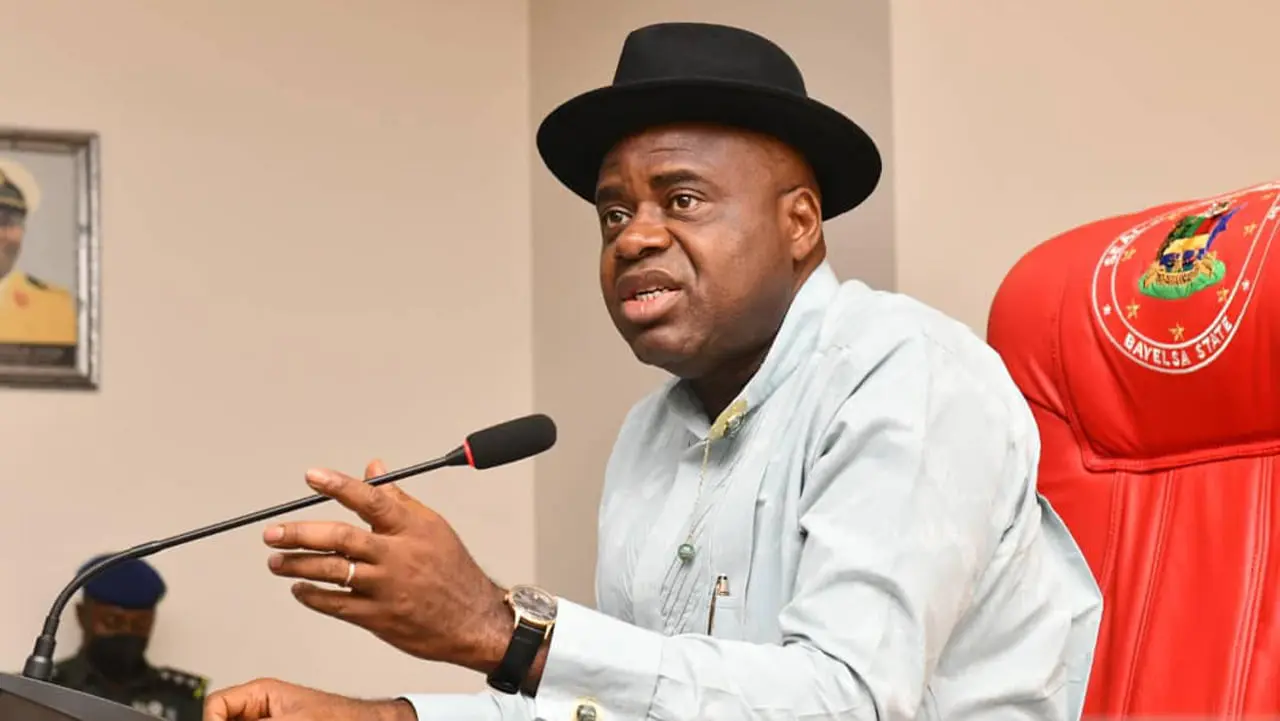NEWS
Bayelsa Governor Argues LGA Disparity is ‘Injustice’, Calls for Dialogue

In a renewed push for fiscal federalism and administrative fairness, Governor Douye Diri of Bayelsa State has once again decried the paltry number of Local Government Areas (LGAs) in his state. Speaking on Monday in Yenagoa, Governor Diri described the situation as an “injustice” and called for a national dialogue to address the deep-seated issues surrounding the creation and funding of local government councils. His renewed call for reform highlights a long-standing national debate over revenue allocation and political representation, with the number of LGAs serving as a crucial determinant for federal funds and political power.
The Governor’s concerns are rooted in a clear and often cited disparity in Nigeria’s administrative framework. Bayelsa, a key contributor to the nation’s oil and gas wealth, has only eight LGAs, one of the lowest numbers in the entire country. This stands in stark contrast to states like Kano, which boasts 44 LGAs, or Jigawa and Imo, which each have 27. According to Dependable NG, the distribution of Nigeria’s 774 LGAs is highly uneven, with northern states generally having a higher number than their southern counterparts. This imbalance has long been a source of contention, as the number of LGAs is a key factor in the revenue allocation formula from the Federation Account. Therefore, a state with more LGAs receives a larger share of federal funds, regardless of its landmass, population, or contribution to the national treasury.
Governor Diri’s appeal for a national dialogue is a direct response to this perceived injustice. He emphasized the need for true federalism, a concept that advocates for greater autonomy for federating units, particularly in matters of resource control and administrative restructuring. “We cannot persist with a scenario where a Bayelsa that produces oil and gas for Nigeria has only 8 LGAs, while others would have 40 and 44 LGAs,” he stated. “It is injustice. We need a national dialogue where we can examine most of these things and local governments’ creation to be the function of state governments with the ability to fund the local governments they can create.” His comments align with the calls from many other regional leaders and groups who believe that the current system, heavily skewed in favor of the federal government and certain states, is inequitable and unsustainable.
The constitutional framework for local government creation further complicates the matter. While the 1999 Constitution guarantees the existence of democratically elected local government councils, it places the power of creation and establishment under the purview of the states. However, the National Assembly must formally recognize any new LGAs. This dual process has led to a political impasse, with states often creating new councils that are not recognized at the federal level, thus denying them a share of the federal allocation. Diri’s proposal for states to have the sole authority to create and fund their own LGAs, without federal oversight, is a radical but increasingly popular idea among advocates of true federalism.
The controversy over LGA numbers is just one facet of the broader debate on fiscal federalism and resource control. For decades, the oil-producing states of the Niger Delta have been at the forefront of the campaign for a more equitable revenue sharing formula, arguing for an increase in the 13% derivation fund they currently receive. The argument is that states should have a deeper stake in the exploitation of mineral resources within their territories. The current system, where states and local governments depend heavily on monthly federal allocations, has been criticized for fostering a culture of dependency and stifling regional development. As Governor Diri and many others have argued, a more decentralized system, where states have greater financial autonomy and the power to manage their own administrative structures, is the only path to achieving a more peaceful, united, and prosperous Nigeria. The call for a national dialogue by a key political figure like Diri signals a growing consensus that the time for constitutional reform and a re-evaluation of Nigeria’s federal structure is long overdue.
